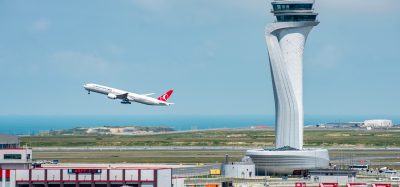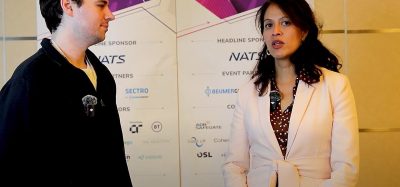Driving the changes for improved ATM performance
- Like
- Digg
- Del
- Tumblr
- VKontakte
- Buffer
- Love This
- Odnoklassniki
- Meneame
- Blogger
- Amazon
- Yahoo Mail
- Gmail
- AOL
- Newsvine
- HackerNews
- Evernote
- MySpace
- Mail.ru
- Viadeo
- Line
- Comments
- Yummly
- SMS
- Viber
- Telegram
- Subscribe
- Skype
- Facebook Messenger
- Kakao
- LiveJournal
- Yammer
- Edgar
- Fintel
- Mix
- Instapaper
- Copy Link
Posted: 18 February 2013 | | No comments yet
The greatest challenge faced by aviation today is the future. It is a future that is likely to be charact – erised by increasing demand, burgeoning levels of air traffic, mounting congestion, tighter environ – mental constraints, and escalating demands on scarce resources including airspace, land use around airports, and even frequency spectrum.
All these have the potential to constrain growth, but all can be managed if the industry pulls together to combine its considerable knowledge and expertise to create innovative solutions and drive value.
The realisation of our collective vision requires a collaborative and multidisciplinary approach involving government policy-makers, legislators and regulators; aircraft operators, air navigation service providers and airports; manufacturers and technology solution providers; and standardsetting organisations, all working closely together.
The greatest challenge faced by aviation today is the future. It is a future that is likely to be charact – erised by increasing demand, burgeoning levels of air traffic, mounting congestion, tighter environ – mental constraints, and escalating demands on scarce resources including airspace, land use around airports, and even frequency spectrum.
All these have the potential to constrain growth, but all can be managed if the industry pulls together to combine its considerable knowledge and expertise to create innovative solutions and drive value.
The realisation of our collective vision requires a collaborative and multidisciplinary approach involving government policy-makers, legislators and regulators; aircraft operators, air navigation service providers and airports; manufacturers and technology solution providers; and standardsetting organisations, all working closely together.
Partnership in global ATM is an essential and recurring theme. To that end, CANSO signed an agreement in 2012 with the Airports Council International (ACI) and the International Air Transport Association (IATA) to better coordinate efforts for driving aviation system improvements. The agreement covers the common priorities of safety, cost-effectiveness and sustainability and reaffirms the commitment of all three industry bodies to move from talking to doing. Its key goals are to strengthen advocacy through consistent industry messaging; increase the number of airport runway safety teams; and identify synergies between respective work programmes in order to accelerate the delivery of tangible outcomes that benefit all stakeholders.
The agreement set a clear goal of delivering tangible benefits within a 12-month period, and progress on those deliverables will be reported at the 17th CANSO AGM in June 2013.
CANSO is also working much more closely with the International Civil Aviation Organisation (ICAO) and, in November 2012, was actively involved in the ICAO 12th Air Navigation Conference (ANConf/12) – its first as an officiallyrecognised international organisation. CANSO played a key role in the process by presenting working papers that were incorporated into the draft recommendations, and by representing a credible global voice for air traffic management on topics ranging from enabling technology to improved standards-setting, policy-making and regulatory practices.
The Conference agreed a draft revised Global Air Navigation Plan (GANP) that will guide industry planning and implementation activities over the next 20 years. This GANP is due to be endorsed by ICAO at the ICAO Assembly in September 2013, which is one of two high level ICAO meetings for 2013: the other being the Air Transport Conference (ATConf/6) in March.
That will follow hard on the heels of the inaugural World ATM Congress in Madrid in February 2013. This is set to be a game-changing event, created by the industry for the industry and featuring the industry’s leading thinkers. A relevant and thought-provoking conference programme is expected to spark the discussions and agreements needed to truly set about changing the industry together.
The focus on change is loud and clear in the theme of the conference: ‘Augmented Reality – Moving to a Transformed Global ATM System.’
The CANSO CEO Conference in Madrid, immediately before World ATM Congress, will also present an opportunity for further development of CANSO’s Vision 2020 – another activity aimed at moving us from talking to doing. The first half of this year will see extensive dialogue and consultations with members and other major stakeholders, with formal endorsement targeted for the CANSO AGM in Curacao in June.
But our aspirations for improved ATM per – formance will only be realised if the appropriate policies, legislation, and regulations are in place to promote a more efficient and flexible use of the airspace. Above all else, the demand for greater efficiency and productivity, and the introduction of new technology and more automation, requires us all to accept and embrace change. I have long been an advocate for CANSO to lead and be a strong driver of positive and urgent change in the ATM industry. Navigating our way forward is the challenge that I have accepted as CANSO’s Director General. I am determined to drive forward the necessary changes that will help improve performance and cost efficiency.
Some industry observers have suggested that, because I’ve moved from IATA to CANSO, I’m going to change my tune, but that’s simply not the case. The tune is the same, but instead of advocating and pushing the requirement, I’ve rolled up my sleeves and changed places to help deliver it. I can assure you that CANSO will continue to promote further improvements in ATM performance through strong global partnerships. CANSO will deliver.
Biography
Jeff Poole joined CANSO as Director General in October 2012. He was previously Director, Government and Industry Affairs with the International Air Transport Association (IATA), a position he had held since May 2011. In that role, he was responsible for proactively pursuing IATA’s industry priorities and airline regulatory issues with governmental authorities globally.
Prior to that Jeff spent more than seven years as IATA Director Industry Charges, Fuel and Taxation, driving significant cost reductions in airport costs, air navigation charges and aviation taxes. Jeff joined IATA in February 2004 following a career at Airbus, Toulouse and in the defence industry with BAESYSTEMS. He has extensive experience of working with governments and major international institutions.


















